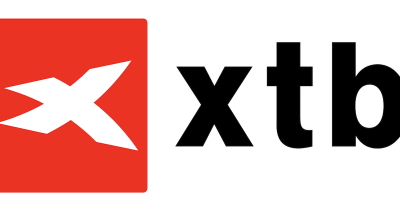XTB is a specialised trading platform with access to hundreds of global markets. Users can invest in shares, indices, raw materials, ETFs and cryptocurrencies. XTB’s 30-day free trial, educational content and some commission-free* trading on real stocks and ETFs, could be a good fit for beginners to online trading.
Pros
- Simple, customisable platform
- Free Demo account for 30 days
- No minimum deposit required
- *0% commissions on stocks and ETFs for monthly volumes up to £85,000
- Interest on uninvested funds held in the account
Cons
- No OCO (‘one-cancels-the-other’) orders
- No social trading or copy trading
- Relatively limited portfolio
Table of Contents
Show more
Show less
XTB: an overview
XTB was launched in Poland in 2002 under the name X-Trade and began its expansion into Europe in 2007. Today XTB has over half a million customers and offers more than 5,600 investment instruments.
Investors using XTB can trade 48 currency pairs (EUR/USD, GBP/USD), cryptocurrencies and large-cap stocks such as Apple, Meta, Microsoft, Tesla. It’s also possible to trade commodities.
Opening an account
Creating an account on XTB is straightforward and takes ‘minutes’ according to its website. After entering their email address, users can choose whether to ‘Open a demo account’ or ‘Open a real account’. They then need to fill out the request form and scan and upload the necessary documents for ID verification such as a passport and proof of address.
Once approved, the XTB account will be activated.
To begin trading, users will need to deposit money into the account. This can be done securely via PayPal, but other options include bank transfer and debit card.
Profits earned from trading operations are automatically credited to a user’s XTB account, where they can remain or be transferred out. Commission is charged on withdrawals of above £50.
Account types
XTB offers a free Demo account for 30 days. This holds ‘virtual funds’ of £85,000, spreads starting from 0.2 pips, and still comes with 24-hour customer support.
The Standard account which is aimed at retail customers, has no costs relating to the opening, closing or management of the account.
Traders can carry out operations on over 5,800 instruments including real assets, raw materials, indices, cryptocurrencies, shares and ETFs. Below are the main costs and features for the Standard account:
To open a Pro account at XTB, investors must qualify for at least two of the following criteria:
- Carried out at least 10 significantly-sized transactions at a frequency of 10 per quarter over the previous four quarters
- Has an investment portfolio, including cash deposits and financial instruments*, which exceeds £427,000 (€500,000)
- Works or has worked in the financial sector for at least one year in a relevant professional position, which requires knowledge of the transactions or services.
XTB: costs and commissions
For stocks and trading ETFs, account opening and management is free for all active clients, regardless of account balance. Neither does XTB charge for deposits, although it warns that some payment providers may charge.
Stocks and ETFs investing with a monthly turnover equivalent up to £858 (€100 000) is commission-free. After that 0.2% applies, to a minimum £10.
Withdrawals from an XTB account made above £50 are free. Below £50, they cost £5.
Earning interest
XTB pays interest on uninvested funds held in the account. Rates of interest vary but at the time of writing (for sterling) they are 4.9% annually for balances over £30,000, and 2.5% annually for balances under £30,000.
Note that interest applies only to the free margin, ie, the balance available on the trading account which is not involved in any transaction and which is available to open new positions or withdraw funds.
Interest is activated automatically on all plans with uninvested funds, and there is no minimum or maximum balance required. Interest accrues on a daily basis and is paid monthly into traders’ accounts.
How to create savings plans (PAC)
XTB recently added a new service that allows users to create and manage accumulation plans (PAC) based on 350 ETFs for free, with a minimum investment amount of £15.
This is a beneficial feature for investors looking for a disciplined, long-term approach to building a well-diversified portfolio. It is possible to manage up to 10 accumulation plans simultaneously, and the user can establish the percentage of the plan amount that must be invested in each ETF.
As for costs, XTB savings plans are commission-free up to a monthly turnover of £85,000. For transactions exceeding this limit, a commission of 0.2% (minimum £8.50) is applied. If you invest in foreign ETFs, a currency conversion fee of 0.5% may apply.
Is XTB safe?
XTB the broker is regulated by the Polish Supervisory Authority (KFN) and authorised and regulated by the UK Financial Conduct Authority. Furthermore, being listed on the stock exchange, XTB is subject to regulation and transparency requirements.
The platform employs strict security measures, including using secure SSL connections and separating retail client funds from their accounts, in line with regulatory obligations. Client money is protected by the Financial Services Compensation Scheme (FSCS) in the event the broker becomes insolvent.
XTB bottom line
Overall XTB is considered to be a safe and convenient online platform for traders.
Account opening is fast and simple, withdrawals and deposits are mostly free. Some services, such as ETF accumulation plans make it possible to invest relatively small amounts of savings across the most suitable diversified portfolio.
However, like any trading platform, XTB also has disadvantages. Firstly, the commissions applied are slightly higher than many on the market. Some traders may also feel that XTB’s portfolio is more limited than its competitors.
However, all investments carry a varying degree of risk and it’s important you understand the nature of the risks involved. The value of your investments can go down as well as up and you may get back less than you put in.
















